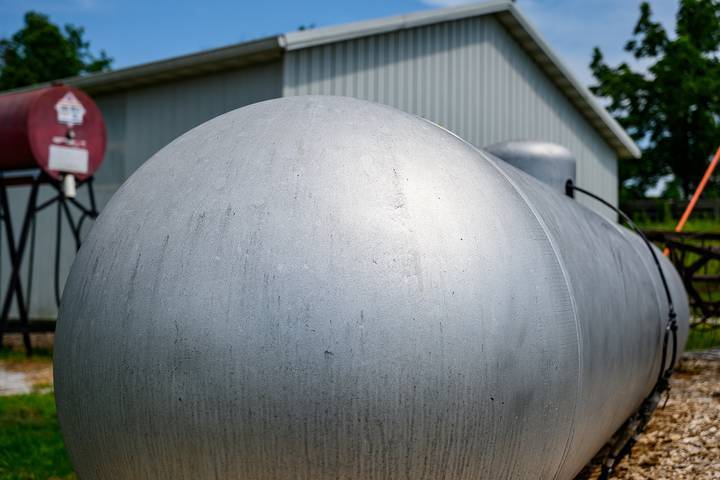
Farming requires a steady supply of high-quality fuel to operate smoothly. Propane stands out as the most dependable fuel for agricultural needs. It’s safe, readily available, and burns efficiently. Propane plays a significant role in agribusiness management. Since the 1920s, this fuel has been an integral part of farm operations in various aspects.
Let’s explore the different uses of propane for agriculture on farms.
Propane for Power Generation
Many farms rely on propane as their primary or backup power source. Propane power generation is an excellent option. It is a top choice among farmers due to its reliable supply and extensive distribution network. Another advantage is that propane won’t degrade over time. After setting up a propane generator, the farmer won’t need to worry about further upkeep. It will work consistently throughout the year.
Propane as a Fuel
Farmers need a steady fuel supply to irrigate fields, harvest and dry crops, or heat buildings during winter. Any disruption in fuel availability can interfere with agricultural operations. Propane is a dependable, long-lasting fuel source. Farmers can quickly acquire it.
Some farms also harness electricity to power certain aspects of their agricultural property. However, you may experience power shortages, inefficiencies, or unexpected supply interruptions. In these emergency scenarios, propane provides a reliable and timely solution.
Lowers Infrastructure Costs
Running electricity on a rural farm can be expensive. Natural gas travels via an extensive pipeline network that criss-crosses the landscape. Rural areas are often disconnected from this network. Building pipelines across vast distances can be financially draining.
In contrast, the price of propane typically costs a fraction of what you’d pay for natural gas if you don’t already possess a pipeline on your property. For remote locations that are not readily accessible, propane reduces infrastructure expenses.
Propane for Farm Vehicles
Agricultural vehicles find great value in propane fuel. Modern agriculture relies on fuel for power, from pick-up trucks to medium-duty vehicles. Propane is also an ideal fuel source for medium-duty vehicles like delivery trucks and service vehicles commonly found in agricultural settings. They can operate effectively on propane, which reduces operating expenses and emissions.
Propane for Heating
Heating is a fundamental necessity in agriculture. Farmers must provide adequate temperatures for outbuildings like barns, greenhouses, and nurseries, especially during winter. Propane is an efficient source of heat and energy. This versatile fuel also assists in essential farm tasks like crop and vineyard warming.
Propane for Crop Care
Propane is an incredibly versatile and user-friendly resource for crop care. Farmers harness its power for numerous applications, including irrigation, drying crops, enhancing thermal agriculture, and managing pests. It can even generate CO2 to boost plant growth in greenhouse spaces. Over the years, numerous agricultural establishments throughout North America have incorporated propane into their operations. Propane is critical for maintaining and ensuring crop quality.
Propane for Livestock Care
Fuel plays an essential role in maintaining a cozy environment for livestock. It is especially useful for barn heating, accurate temperature regulation, and sanitation. It is also used in pressure washers, steam generators, and drying systems. Other propane-powered equipment includes boilers and furnaces, which provide heat to raise healthy and thriving animals.
Propane for Storage and Refrigeration
Propane is a reliable source of cooking and preserving food in many households. It has similar applications on farms. Propane can help store, refrigerate, and heat crops. One example would be its use in powering grain dryers.
Furthermore, propane is an eco-friendly fuel that can be employed in agricultural processes without contamination. In fact, most contemporary grain dryers rely on propane, reducing yield loss and providing increased flexibility in grain harvesting schedules.
Propane for Weed Control
Many farmers and agriculture companies are not using herbicides and chemicals to eliminate weeds. They are using propane. The weed is heated with intense heat, the plant cells rupture, and the weed dies. This effective approach enables organic farmers to keep rampant weeds at bay. They also preserve their precious farmland without harmful herbicides.
Carbon Footprint Reduction
Propane produces lower greenhouse gas emissions than gasoline, diesel, heavy fuel oil, or ethanol. Burning propane also emits fewer air pollutants. Air quality is essential in agriculture, affecting crops, livestock, and workers. Thankfully, propane is a valuable resource for farms looking at more eco-friendly, environmentally-friendly ways to do business.









